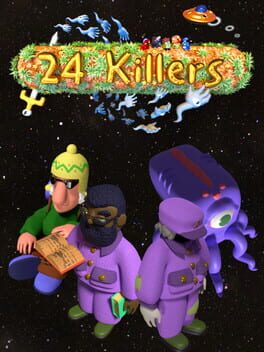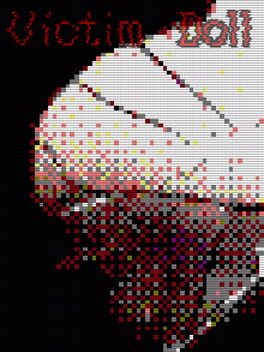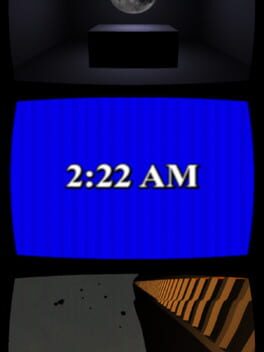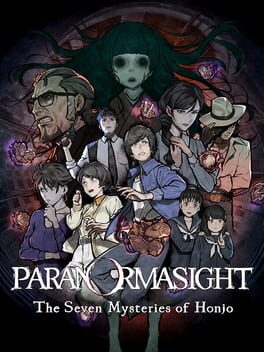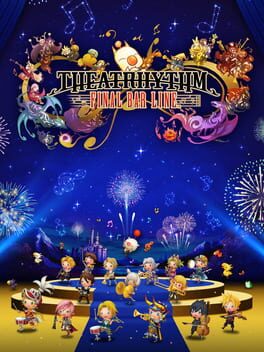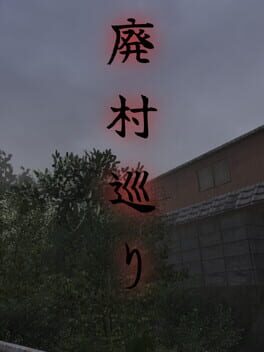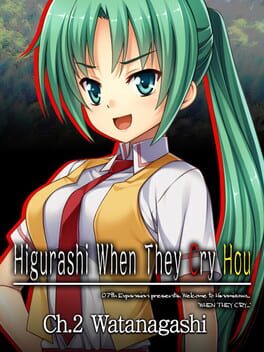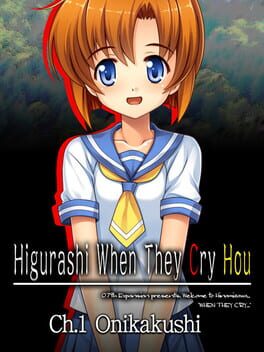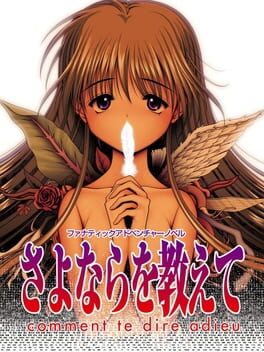01156
BACKER
2023
"Turn out the lights. The party's over. All good things must come to an end."
A charming Love-de-Lic-like, 24 Killers places the player in a strange but somehow nostalgic island full of mystery. For the uninitiated, it follows a Zelda type problem solving gameplay loop where tools provided to the player earnt through character interactions lead to new areas or secrets and ease of progression. It makes for a relaxing and refreshing introduction to the unique subgenre refined by Love-de-Lic.
24 Killers really shines in its dialogue shared with a variety of creatures and critters who you'll meet and assist while exploring. Our protagonist named Home starts out abrasive to the idea of helping others, but their colours changing over the course of the game accompanied to an earnest acoustic score was lovely to see.
Rolled credits on my first universe and am marking completion, though I do intend to keep playing. My minor nitpicks regarding the repetitiveness of the toast cutscene and finding farming whispers in early game a bit difficult aside, this game warmed me in a time when I needed it most.
A charming Love-de-Lic-like, 24 Killers places the player in a strange but somehow nostalgic island full of mystery. For the uninitiated, it follows a Zelda type problem solving gameplay loop where tools provided to the player earnt through character interactions lead to new areas or secrets and ease of progression. It makes for a relaxing and refreshing introduction to the unique subgenre refined by Love-de-Lic.
24 Killers really shines in its dialogue shared with a variety of creatures and critters who you'll meet and assist while exploring. Our protagonist named Home starts out abrasive to the idea of helping others, but their colours changing over the course of the game accompanied to an earnest acoustic score was lovely to see.
Rolled credits on my first universe and am marking completion, though I do intend to keep playing. My minor nitpicks regarding the repetitiveness of the toast cutscene and finding farming whispers in early game a bit difficult aside, this game warmed me in a time when I needed it most.
2022
evocative, scintillating, immersive. a sobering scifi kink experience. the simplicity of Super Videotome weighed my experience down just a little, but i was definitely inspired to develop something of my own utilising the engine sometime. impressed with the pacing and prose on display.
please take the content warnings seriously!
please take the content warnings seriously!
2014
a wonderfully playful mystery.
i went in expecting something a little bit more high risk and time management-y, but came away content with the more linear structure, as missing any shred of information about the characters or world was unacceptable to me.
a special thank you to Kobayashi's bold and expressive character artwork, and to Iwasaki's hauntingly sincere score, both massively contributing to and complimenting Honjo's vibe.
take control of your fate and play this game! i hope to cross paths with the Storyteller once again someday soon...
i went in expecting something a little bit more high risk and time management-y, but came away content with the more linear structure, as missing any shred of information about the characters or world was unacceptable to me.
a special thank you to Kobayashi's bold and expressive character artwork, and to Iwasaki's hauntingly sincere score, both massively contributing to and complimenting Honjo's vibe.
take control of your fate and play this game! i hope to cross paths with the Storyteller once again someday soon...
been waiting for years and it was everything I ever wanted.
a minor gripe is to do with directional/stick inputs and how every direction and combination share the exact same appearance, spoiling more than a few perfect combos, which could very well just be a problem with my own perception.
aside from nitpicking slightly disappointing song and unit selections (those ff3 units...) and the above issue, an otherwise flawless release.
a minor gripe is to do with directional/stick inputs and how every direction and combination share the exact same appearance, spoiling more than a few perfect combos, which could very well just be a problem with my own perception.
aside from nitpicking slightly disappointing song and unit selections (those ff3 units...) and the above issue, an otherwise flawless release.
2022
2022
a biblical epic, best experienced with a talented loremaster and guide who can point out significant items and areas.
previously abandoned around year ago on release, i restarted with a fresh face and, more importantly, a kind pair of friends to travel alongside. i've played every "souls" title and i have to say ER has shot to the number one place in my heart alongside sekiro after giving it another chance.
"it's about the rebus, okay? it's about sulfur and mercury."
previously abandoned around year ago on release, i restarted with a fresh face and, more importantly, a kind pair of friends to travel alongside. i've played every "souls" title and i have to say ER has shot to the number one place in my heart alongside sekiro after giving it another chance.
"it's about the rebus, okay? it's about sulfur and mercury."
horrific. kind of made me feel like an insane person. doesn't have the same dramatic peaks as chapter 1, but had a lot of striking moments that I felt were far more important and really left a mark on me.
once again deducting a star for the slice of life as those scenes this time were particularly teeth-grindingly painful. i hope to never look at angel mort ever again.
once again deducting a star for the slice of life as those scenes this time were particularly teeth-grindingly painful. i hope to never look at angel mort ever again.
Ringing in the new year with completing my first foray into the denpa genre at a friend’s recommendation. Best read very late at night.
A sickly orange twilight is our backdrop to an acute, albeit harshly dated, portrayal of mental fragility and staggering acts of sudden violence. It’s no secret sayooshi is a hard to read title, I required frequent day long breaks in order to get to the core of the presented narrative, but it’s not something I regret at all. What lies beneath a veneer of sadistic fantasy is a story ripe for engaging critical analysis.
Outside of intentionally repetitive script which proved quite effective for both emphasis and flow, the rawness of the prose often stopped me in my tracks. Living in the protagonist’s head for the period of my playtime had me thinking of both his and others’ dialogue long after closing the game; the writing is gripping, the reader hanging off of every word as scenes end, leaving them with some final mysterious phrase which would only be elaborated on in another route.
The artwork is infectious in style, with the sharply pointed noses and almost melting eyes growing on me instantly. Paired with the warm reddish overlay layers and hauntingly stark 3DCG pre-rendered backgrounds, sayooshi establishes an iconic, instantly memorable presentation which is respected and referenced to this day. I especially enjoy the very much alive cult following and fanartist community this title keeps well after 20 years, a testament to its impact.
Upon first thinking the soundtrack merely did its job as background noise, before I knew it I was listening to the tracks outside of the game. Simple synth notes and drum samples make up evocative musical themes for every cast member, along with their use often adding to horrific juxtapositions in mood. My favourite tracks ended up being the smoky “Feignant” and the meandering, dreamlike “Inmobilite et Tourbillon”; the sound of an attempt to return to normalcy.
I don’t feel comfortable giving a rating, but I encourage those able to stomach more extreme scenes and seeking an entirely unique psychological horror experience to dive in.
じゃ、さよなら…
A sickly orange twilight is our backdrop to an acute, albeit harshly dated, portrayal of mental fragility and staggering acts of sudden violence. It’s no secret sayooshi is a hard to read title, I required frequent day long breaks in order to get to the core of the presented narrative, but it’s not something I regret at all. What lies beneath a veneer of sadistic fantasy is a story ripe for engaging critical analysis.
Outside of intentionally repetitive script which proved quite effective for both emphasis and flow, the rawness of the prose often stopped me in my tracks. Living in the protagonist’s head for the period of my playtime had me thinking of both his and others’ dialogue long after closing the game; the writing is gripping, the reader hanging off of every word as scenes end, leaving them with some final mysterious phrase which would only be elaborated on in another route.
The artwork is infectious in style, with the sharply pointed noses and almost melting eyes growing on me instantly. Paired with the warm reddish overlay layers and hauntingly stark 3DCG pre-rendered backgrounds, sayooshi establishes an iconic, instantly memorable presentation which is respected and referenced to this day. I especially enjoy the very much alive cult following and fanartist community this title keeps well after 20 years, a testament to its impact.
Upon first thinking the soundtrack merely did its job as background noise, before I knew it I was listening to the tracks outside of the game. Simple synth notes and drum samples make up evocative musical themes for every cast member, along with their use often adding to horrific juxtapositions in mood. My favourite tracks ended up being the smoky “Feignant” and the meandering, dreamlike “Inmobilite et Tourbillon”; the sound of an attempt to return to normalcy.
I don’t feel comfortable giving a rating, but I encourage those able to stomach more extreme scenes and seeking an entirely unique psychological horror experience to dive in.
じゃ、さよなら…
